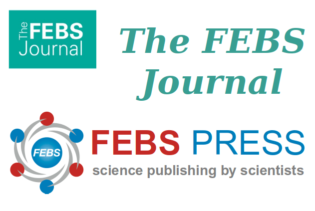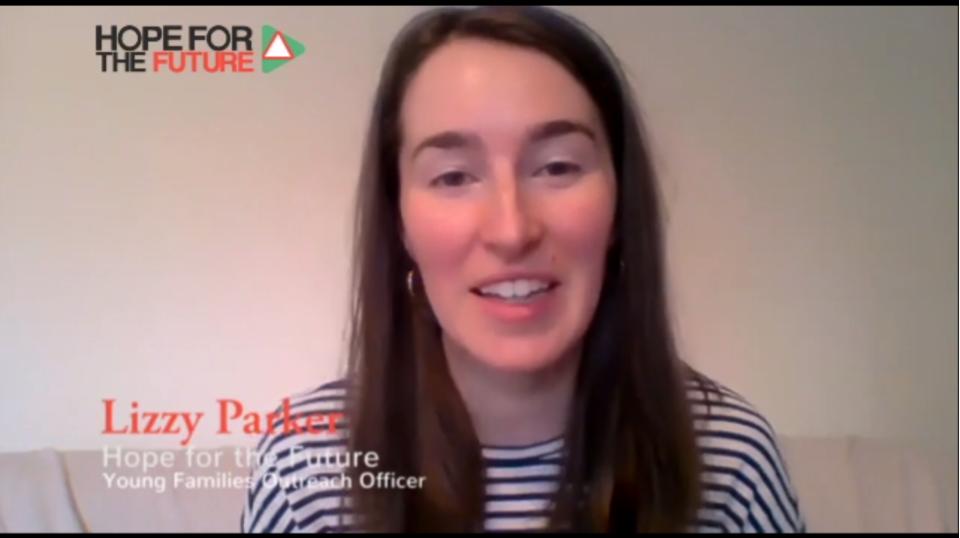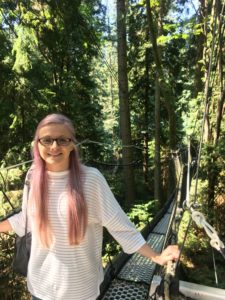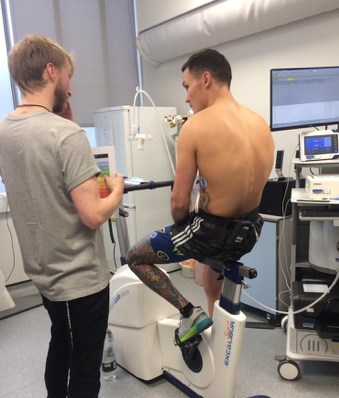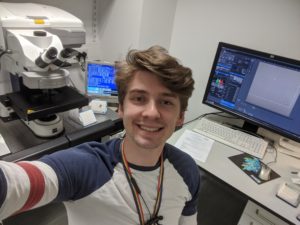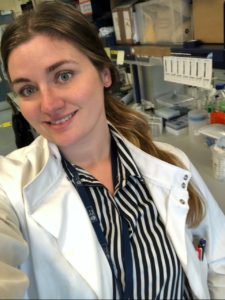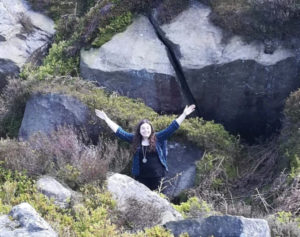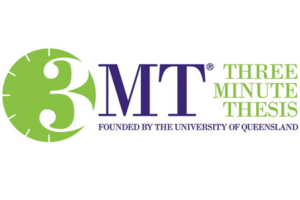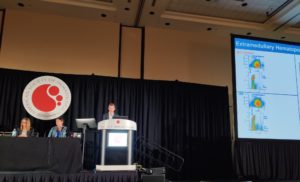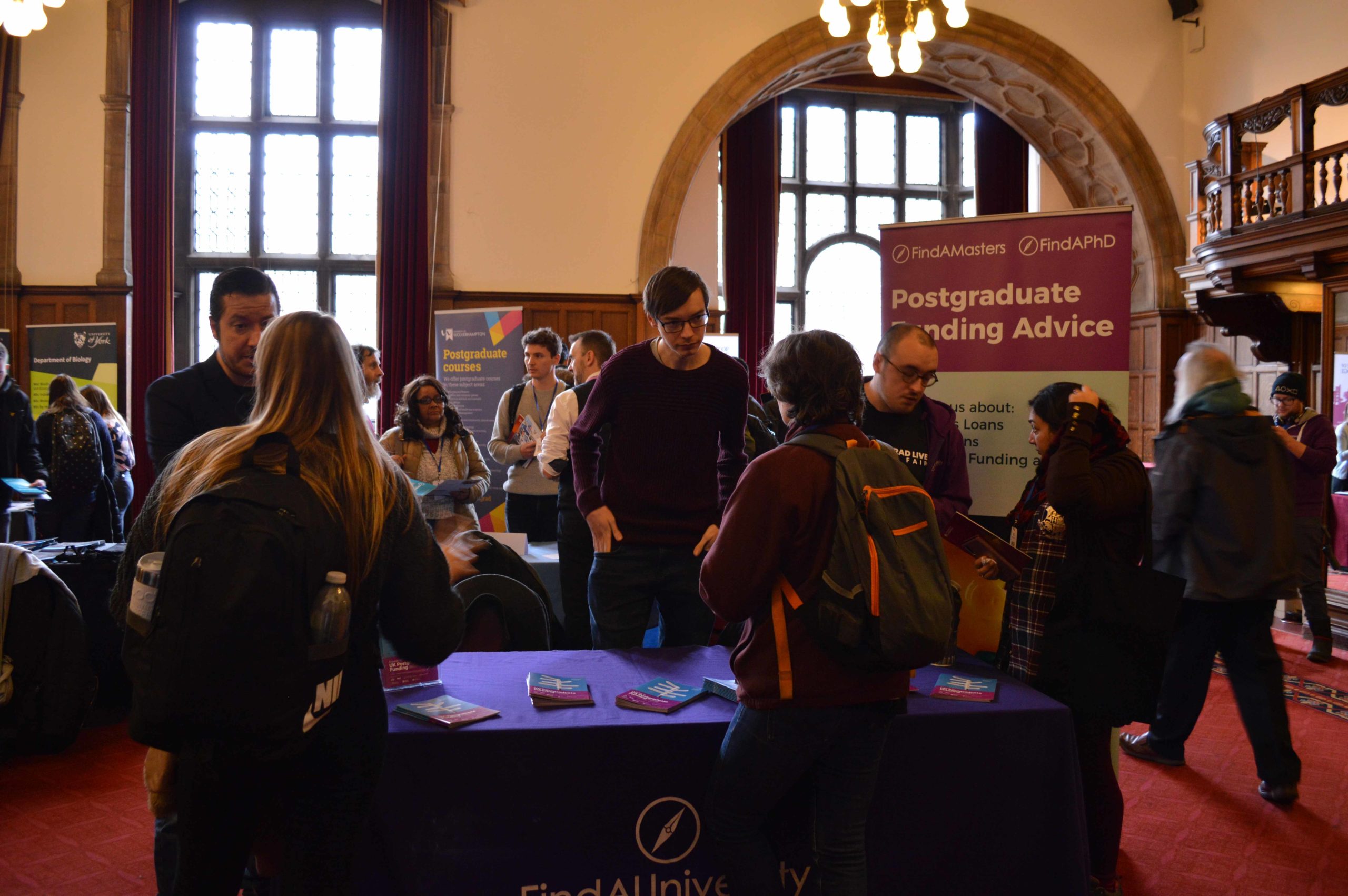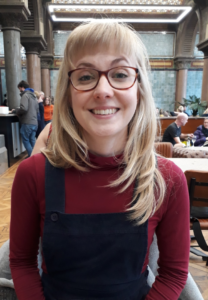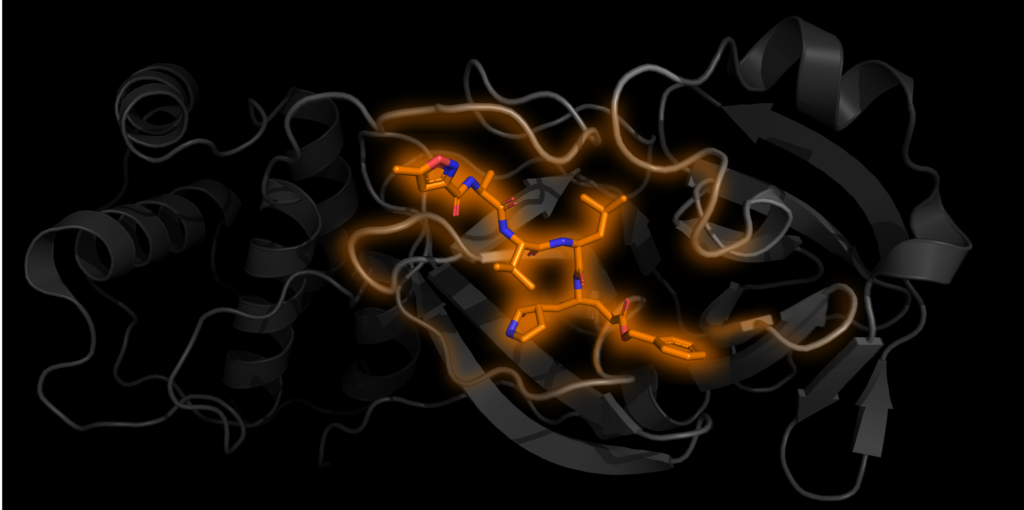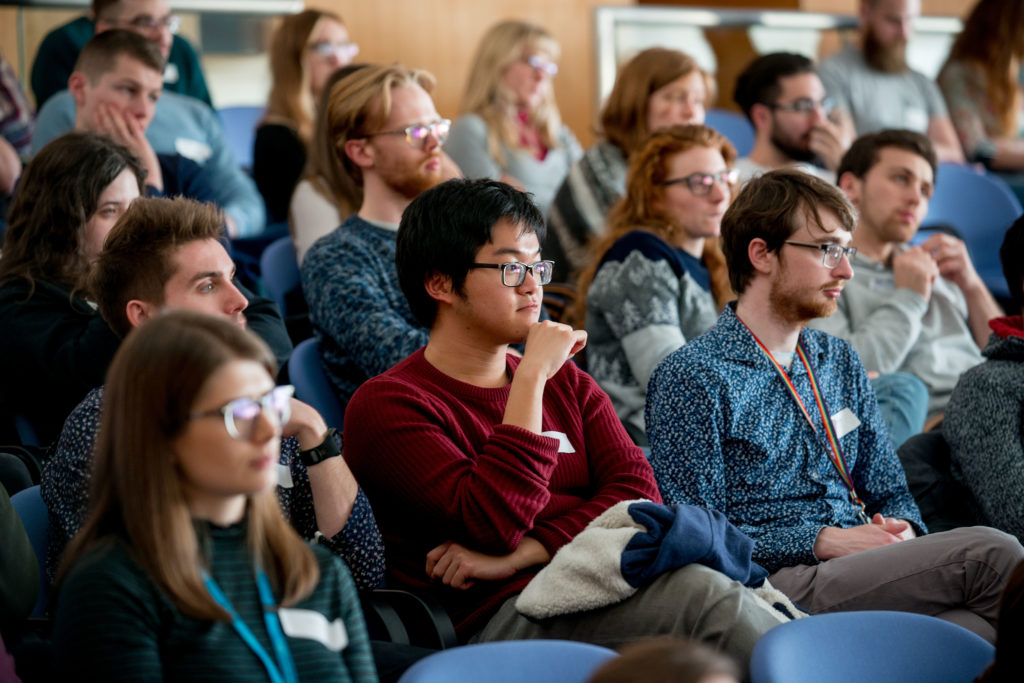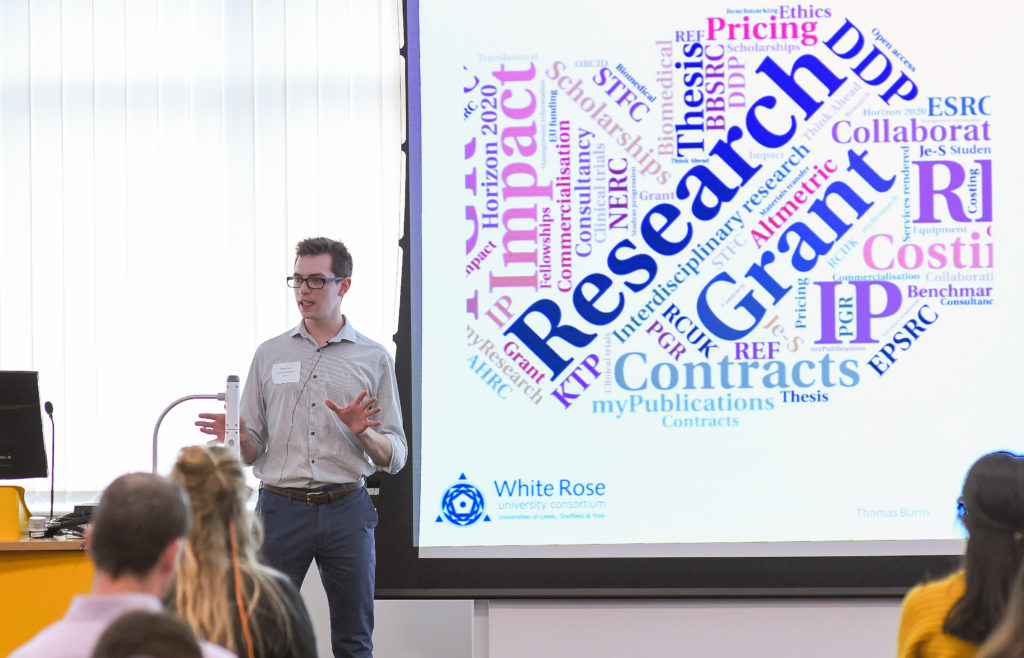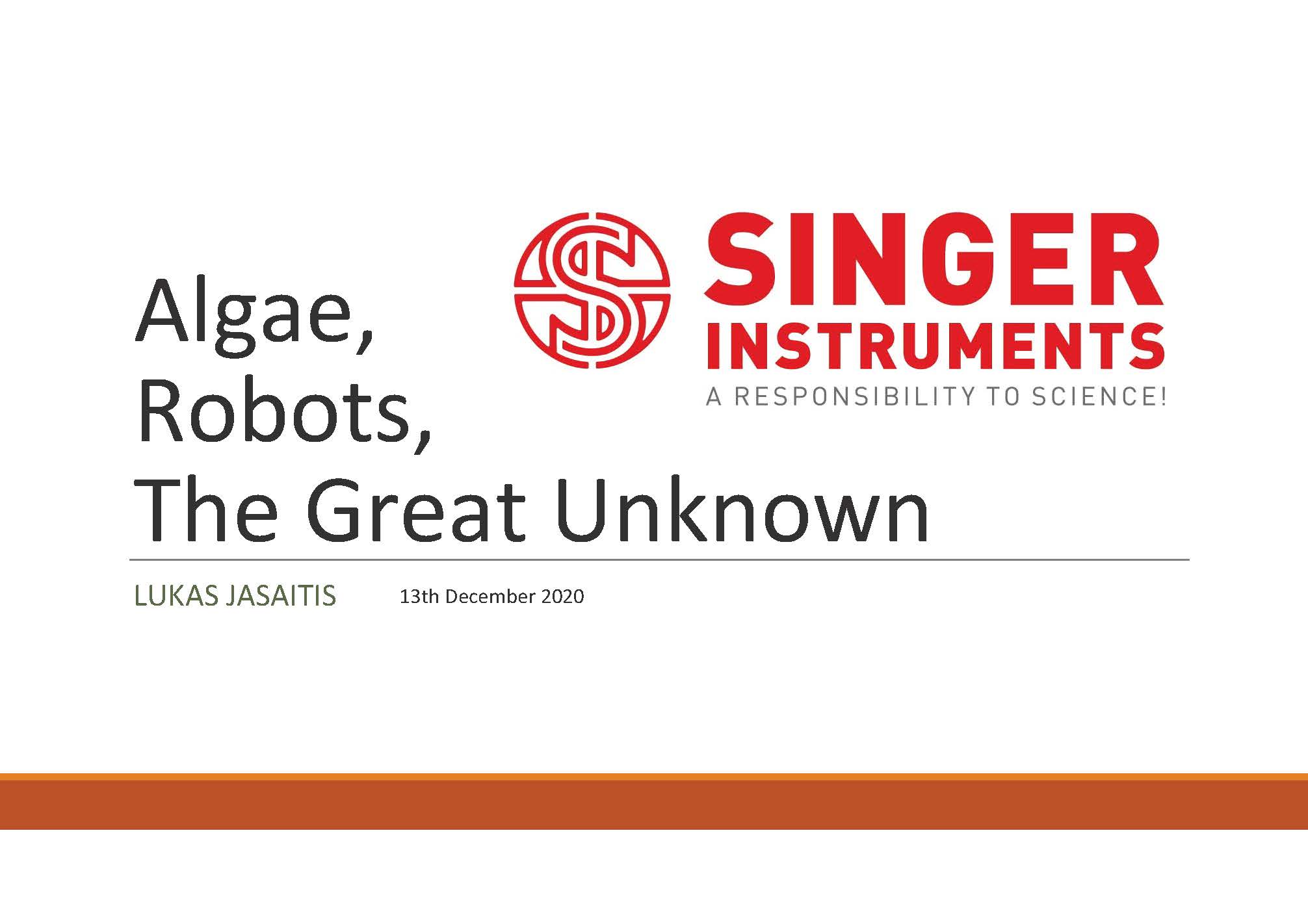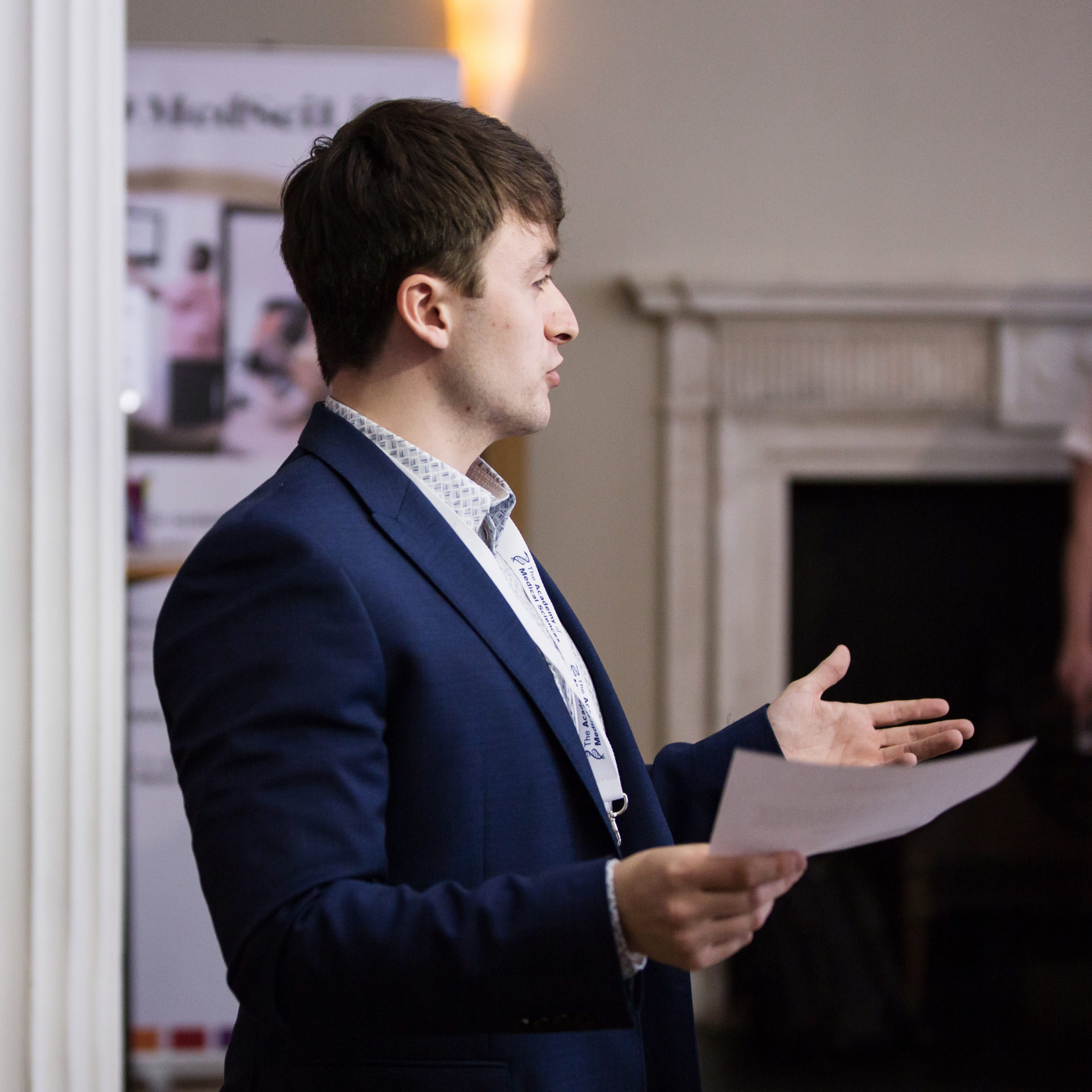Ioannis Tsagakis immersed himself into the life of a scientific editor by undertaking an editorial internship at FEBS Press in his third year of PhD. The timing coincided with COVID-19 lockdown hence the internship was completed ‘virtually’ from Leeds, instead of the Cambridge office.
Lizzy Parker – Hope for the Future
Lizzy Parker is a PhD student at the University of Sheffield who spent 6 months working part-time at Hope for the Future. Hope for the Future is a national climate communication charity which works to equip communities, groups and individuals across the country to help communicate the urgency of climate change with their local politicians. Keep reading to find out more about what Lizzy’s role involved and why she chose to do this particular placement!
UK-Canada Globalink doctoral exchange scheme – Deadline: 15 Dec20
The deadline was originally 8th December but has been extended to 15 December 2020 16:00 UK time
Now open for the third call for applications from UKRI-funded doctoral students, the scheme will support travel, living and research costs for the students in their chosen field of study.
A new and exciting opportunity for UKRI and Canadian doctoral students to participate in a UK-Canada research exchange scheme.
UKRI has partnered with Mitacs, a national, not-for-profit organization that has designed and delivered research and training programs in Canada for 20 years, to deliver the £2.5 million programme.
Supported by UKRI and Mitacs, up to 200 UK doctoral candidates will have the opportunity to develop into global citizens, with international competencies, during 12-week research placements in Canadian universities. A similar number of Canadian students will visit UK universities.
The scheme supports the UK government’s target of 2.4% GDP spend in research and development by 2027, helping the UK make the most of its world-class research, supporting its researchers to stay at the cutting edge, forge international collaborations, and encourage global talent to work in the UK.
As a collaborative scheme between the UK and Canada, an equal number of Canadian doctoral students will have the opportunity to undertake research placements at UK universities.
How to apply
If you are interested in this scheme, do not waste any time in applying. There is a lot of paperwork involved and you will need to seek the help of your PIPS contact to access Je-S.
Deadline: 15th December 2020 16:00 UK time
Are you a writing snacker or a binger?
The second virtual DTP skills session was aimed at helping students cultivate writing habits to make writing enjoyable and more productive. In this interactive writing workshop under the guidance of Dr Jenny Rivas Perez, students reflected on writing goals and exchanged advice on overcoming writing barriers.

Research in the 1990s categorised academics as snackers or bingers, based on those who were writing often and those who only wrote when there was an impending deadline, cramming all writing in a couple of days. Exploring this concept further, students in the DTP skills session discussed the benefits and drawbacks of writing and not writing. Highlights from this discussion included “a better understanding of the topic” and “helping pick out knowledge gaps” as benefits of writing. Surprisingly, there are benefits to not writing, such as “having a moment of reflection” or “stepping away from writing to be in the lab or going about your daily activities”. However, prolonged writing inactivity can have drawbacks too since “it can be really hard to fill the gap(s) of not writing”. For instance, having to refer to potentially five lab books when writing your thesis can be a big time-sink. Conversely, allocating time to write a summary of your daily endeavours is essentially writing to yourself in the future, making information readily available.
“Until you start writing about what you think you know, you don’t realise the gaps in your logic” suggested Dr Jenny Rivas Perez
Exploring the science behind everyday plants- Nutmeg
What do the classic european winter dishes of cauliflower cheese and mince pies have in common with traditional indonesian semur? The answer- nutmeg.
Nutmeg is the seed of the tree Myristica fragrans, with its close relative, Mace, being the seed covering. These days it is cultivated around the world in tropical regions but it originates from the Banda Islands of Maluku. In the Middle Ages it was traded across to Europe by the Arabs but, in 1511, the Portuguese annexed the islands. This was the start of the enslavement and murder of the Bandanese and over 100 years of bloody battles with the Dutch and English.
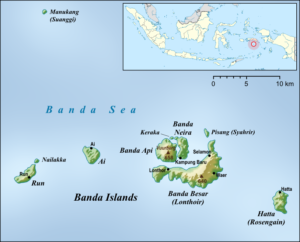
Read moreExploring the science behind everyday plants- Nutmeg
Get to know … your WRDTP Comms Team: Rhianna Rowland
Hi, my name is Rhianna and I’m a 4th year PhD student at the University of York. I work at YSBL focussing on human lysosomal enzymes which breakdown various glycoconjugates within our bodies. Inherited deficiencies in these enzymes leads to range of metabolic diseases called lysosomal storage disorders. My project aims to structurally characterise these enzymes and aid in the development of chemical probes, inhibitors and chaperones for diagnostic and therapeutic purposes. Coming from a Masters year in analytical chemistry, this project has been a real challenge. Working with membrane-associated proteins, delving into insect-baculoviral expression systems and the dark art of protein crystallography has all been new to me, but I chose this project because I felt it would allow me to explore protein chemistry/structural biology with real-life applications in human health and disease.
Why did you join the DTP Communications team?
I enjoy scientific writing and saw this as a great opportunity to improve my writing skills whilst further engaging with the White Rose DTP and its students. I hope to learn more about the exceptional research conducted by White Rose students and to share/showcase this with other students in the DTP through blogs and the use of social media. I also see this is a chance to share non-scientific content which I hope students (including myself!) will find helpful in coping with PhD life and maintaining a healthy wellbeing.
Read moreGet to know … your WRDTP Comms Team: Rhianna Rowland
Academy of Medical Sciences – Deadline: 22 Nov20
The Academy of Medical Sciences Grants and Programmes internship scheme is open for applications for internships in 2021.
Applications are welcomed for 3 month internships between January-December 2021. The scheme is open to BBSRC-funded PhD students through the PIPS scheme.
The scheme is designed to give students first-hand experience of the research funding and career development sectors, and to build valuable networks with the UK’s most eminent medical scientists and senior science and health stakeholders. There is a case study of a recent intern here that gives some examples of the kinds of projects that interns in our team will be involved with.
We expect the internships to be full-time positions for the full three-month period. However, in exceptional circumstances, the Academy will consider requests for a reduced duration. Due to the ongoing pandemic, we expect internships beginning in January 2021 will be supervised remotely. Place of work for internships from April 2021 onwards will depend on the Academy’s policy in response to the pandemic, however we will discuss with interns the feasibility of any travel, either to the Academy offices or elsewhere in the UK for internship activities, in light of government guidelines and personal circumstances.
More details can be found at https://acmedsci.ac.uk/about/administration/internship-schemes
The deadline for applications is 22 November 2020.
Contact for any queries:
Dr Kim Hutchings
International Grants Manager
The Academy of Medical Sciences
41 Portland Place
London W1B 1QH
+44 (0)20 3141 3234
Please note my working days are Tues-Fri
Sport, psychology, and animal video clips with PIPS
BBSRC DTP PhD student Matthew Chadwick undertook a PIPS with the Human Performance Service in the Sport and Exercise Sciences Department of the University of Leeds, providing technical consultation and training to research teams. In case you wanted additional reasons to watch those cat videos on the internet, keep reading.
Read moreSport, psychology, and animal video clips with PIPS
Get to know… your WRDTP student reps: Alex Scott
Alex has just now, in October, entered third year – how time flies!
Get to know… your WRDTP comms team – Rachel Greenhill
I’m Rachel, a PhD student at Sheffield and one of your 2020 comms committee members for the BBSRC White Rose DTP. I joined the committee primarily to help gain more experience in social media management and develop my writing skills but I have really enjoyed the insights I’ve gained into other people’s work and really enjoy highlighting all your achievements!
Prior to joining UoS, I worked for 5 years as a Genomics Scientist at Tun Abdul Razak Research Centre (TARRC), developing molecular markers for Hevea brasiliensis (natural rubber) clonal variety confirmation to aid in field misidentification in Malaysia. This role really highlighted to me the fundamental necessity for global crop improvement efforts to meet food security targets, and directed me down my career path.
The focus of my PhD project is primarily to look into what underpins the virulence of Striga asiatica, a parasitic plant which devastates cereal crop yields in Central and Eastern Africa. I’ve found my research focus in the crop improvement/food sustainability field, and is something I’m very passionate about!
Alongside working with plants in my academic life, I also have an allotment which keeps me very busy on the weekends. I also enjoy running and somehow completed my 4th half marathon in the brilliant Sheffield half in 2019.
I’m looking forward to bringing lots of plant-focused content to the DTP blog, twitter and more in the future!
Exploring the science behind everyday plants – Maple
It’s spooky season! Whether you call it Autumn or Fall one of the most spectacular plants at this time of year is the Sugar Maple (Acer saccharum). It’s native to Canada and the far north of the United States but is sometimes cultivated abroad.

Read moreExploring the science behind everyday plants – Maple
Get to know.. your WRDTP student reps – Molly Patterson
Our next WRDTP student rep profile is here… This week we are introducing you to Molly Patterson, a freshly minted DTP rep with a passion for the very relevant as of recent topic of virology!
Molly joined the DTP in 2018 at the University of Leeds after her integrated masters at Leeds. Remaining at the Mcdonald lab, she resumes addressing central questions in the field of virology and cancer. Read about her recent publication here: https://pubmed.ncbi.nlm.nih.gov/32555725/
Check out our Q&A session in full!
Read moreGet to know.. your WRDTP student reps – Molly Patterson
ABPI – Exam digitalisation – Deadline: 28 Oct 2020
Background information
The Association of the British Pharmaceutical Industry (ABPI) delivers the professional ABPI Medical Representatives Exam, taken by those who call upon doctors, dentists, and other UK prescribers and/or promote medicines based on their therapeutic properties. This includes representatives from virtually all pharmaceutical companies with UK operations.
When the COVID-19 pandemic emerged, paper-based exams that were held monthly at venues across the country were cancelled and the ABPI have since been working on a project to move all examinations online.
Integrity of the Exam is crucial to building and maintaining the trust and reputation of the UK pharmaceutical industry.
Please note: since the COVID pandemic reached the UK, the ABPI has successfully undertaken virtual onboarding of a number of interns.
Project offered
Following on from previous successful PIPS internships for other projects, we are once again, seeking a PIPS student to apply their scientific and project management experience in an examinations and education context.
This project seeks to contribute to the development of the online ABPI Medical Representatives. The output of the project will be the successful delivery of the newly formatted exam which will be important in maintaining integrity of the industry as the world continues to virtually evolve.
The applicant will be expected to support the ABPI Education and Examinations Executive with development of the exam, liaising with internal teams, external providers, and the ABPI Exam Governance and Exam Steering Groups. Alongside this role, there may be the opportunity for the applicant to contribute to updating and/or incorporating new material to the exam, and development of new qualifications.
The project will also include scope to improve ABPI’s engagement with member pharmaceutical companies from the Research, Medical and Innovation team in other formats such as written communication. The applicant will have the opportunity to help develop better communications on research, medical & innovation topics.
The successful applicant can expect to have a supervisor who would meet regularly for virtual guidance and support at the current time, with potential face to face meetings depending on Government guidance in relation to COVID and company policy.
How to apply
Interested students should email Andrew Croydon – contact details below – in the first instance, or they can apply directly to Andrew with a CV and covering letter.
Final application deadline: by close of business Wednesday 28th October 2020.
Note: ABPI has successfully virtually onboarded a few interns since lockdown and Andrew is happy to answer any questions specifically relating to this aspect of internships.
Contact
Andrew Croydon
Skills & Education Policy and Examinations Director
The Association of the British Pharmaceutical Industry
Direct: +44 (0)2077471436
Email: ACroydon@abpi.org.uk
A company limited by guarantee registered in England & Wales number 09826787 | Our Privacy policy
7th Floor Southside, 105 Victoria Street, London, SW1E 6QT
ABPI – Research, medical and innovation (RM&I) member engagement – Deadline: 28 Oct 2020
Background information
The Association of the British Pharmaceutical Industry (ABPI) exists to make the UK the best place in the world to research, develop and use new medicines. Representing small, medium, and large pharmaceutical companies, the ABPI is a large trade association that greatly values engagement and high levels of member satisfaction.
By representing members and gathering their insight and experiences, the ABPI tells the story of how they change the lives of millions of people every day.
Please note: since the COVID pandemic reached the UK, the ABPI has successfully undertaken virtual onboarding of a number of interns.
Project offered
Following on from previous successful PIPS internships for similar projects, we are once again, seeking a PIPS student to apply their scientific and project management experience in a policy context.
This project seeks to improve ABPI engagement with member pharmaceutical companies as we navigate through the COVID-19 pandemic. The output of the project will be the set-up and delivery of the ABPI Research, Medical and Innovation (RM&I) member webinars and virtual networking events (with support and input from the RM&I and Events Teams). These will cover a range of research, medical and innovation topics.
The applicant will be expected to liaise with ABPI colleagues, member companies, and external stakeholders to deliver successful events with high levels of engagement. The applicant will also be expected to analyse feedback on events and suggest areas for improvement for future events.
The project will also include scope to improve ABPI’s engagement with member pharmaceutical companies from the Research, Medical and Innovation team in other formats such as written communication. The applicant will have the opportunity to help develop better communications on research, medical & innovation topics.
The successful applicant can expect to have a supervisor who would meet regularly for virtual guidance and support at the current time, with potential face to face meetings depending on Government guidance in relation to COVID and company policy.
How to apply
Interested students should email Andrew Croydon – contact details below – in the first instance, or they can apply directly to Andrew with a CV and covering letter.
Final application deadline: by close of business Wednesday 28th October 2020.
Note: ABPI has successfully virtually onboarded a few interns since lockdown and Andrew is happy to answer any questions specifically relating to this aspect of internships.
Contact
Andrew Croydon
Skills & Education Policy and Examinations Director
The Association of the British Pharmaceutical Industry
Direct: +44 (0)2077471436
Email: ACroydon@abpi.org.uk
A company limited by guarantee registered in England & Wales number 09826787 | Our Privacy policy
7th Floor Southside, 105 Victoria Street, London, SW1E 6QT
ABPI – Appropriate prescribing, ethics and the code – Deadline: 28 Oct 2020
Background information
The Association of the British Pharmaceutical Industry (ABPI) is a UK trade association representing small, medium, and large pharmaceutical companies who invest in discovering future medicines. The ABPI’s Research, Medical and Innovation Team (RM&I) operates four strategic leadership groups (SLGs) that support and contribute to the ABPI’s mission to make the UK the best place in the world to research, develop and use the medicines of the future.
The ABPI Appropriate Prescribing, Ethics and the Code (APEC) SLG comprises senior medical directors from member companies. APEC’s purpose is to provide medical leadership, lead appropriate prescribing policies, champion the ABPI Code of Practice, improve patient and public involvement in research, research transparency, and support medical education activities. APEC have been involved in the ABPI’s response to the COVID-19 pandemic which has strongly emphasised the importance of the group and its remit.
Please note: since the covid pandemic reached the UK, the ABPI has successfully undertaken virtual onboarding of a number of interns.
Project offered
Following on from previous successful PIPS internships, we are seeking a PIPS student to apply their scientific and project management experience in a policy context.
This project seeks to work closely with senior members of pharmaceutical companies to contribute to ABPI policy positions relating to ethical aspects of developing medicines and companies obligations supporting the appropriate prescribing of medicines. This includes work to support future development of the ABPI Code of Practice.
The applicant will be expected to co-ordinate activities, organise and attend meetings, and integrate insights from stakeholders and ABPI members into policy papers.
The successful applicant can expect to have a supervisor who would meet regularly for virtual guidance and support at the current time, with potential face to face meetings depending on Government guidance in relation to COVID and company policy.
How to apply
Interested students should email Andrew Croydon – contact details below – in the first instance, or they can apply directly to Andrew with a CV and covering letter.
Final application deadline: by close of business Wednesday 28th October 2020.
Note: ABPI has successfully virtually onboarded a few interns since lockdown and Andrew is happy to answer any questions specifically relating to this aspect of internships.
Contact
Andrew Croydon
Skills & Education Policy and Examinations Director
The Association of the British Pharmaceutical Industry
Direct: +44 (0)2077471436
Email: ACroydon@abpi.org.uk
A company limited by guarantee registered in England & Wales number 09826787 | Our Privacy policy
7th Floor Southside, 105 Victoria Street, London, SW1E 6QT
ABPI Advanced Therapy Medicinal Products and Cell & Gene Therapies Project – Deadline: 28 Oct 2020
Background information
The Association of the British Pharmaceutical Industry (ABPI) is a UK trade association representing small, medium, and large pharmaceutical companies who invest in discovering future medicines. The ABPI exists to make the UK the best place in the world to research, develop and use new medicines.
In 2020 the ABPI has responded to the COVID-19 pandemic by working closely with the Department of Health and Social Care, the NHS, regulators, and academic partners on how ABPI member companies can best support the UK Government.
One ongoing avenue is participation in the Government’s COVID Therapeutics Taskforce whereby knowledge on therapeutic targets and early drug candidates is crucial to understanding the fast-moving landscape and developing policy.
Project offered
Following on from previous successful PIPS internships, we are seeking a PIPS student to apply their scientific and project management experience in a policy context.
This project seeks to analyse the Advanced Therapy Medicinal Products (ATMPs) and Cell & Gene therapies landscape by undertaking desk-based research and extracting and interpreting information from a wide range of data sources.
The output of the project will be to create an ongoing report, with the potential for publication by the ABPI, and a slide set which can be used in presentations to showcase the global effort in this area and to input to AAC (Accelerated Access Collaborative) workstreams in due course.
The successful applicant can expect to have a supervisor who would meet regularly for virtual guidance and support at the current time, with potential face-to-face meetings depending on Government guidance and company policy.
Please note: since the covid pandemic reached the UK, the ABPI has successfully undertaken virtual onboarding of a number of interns.
How to apply
Interested students should email Andrew Croydon – contact details below – in the first instance, or they can apply directly to Andrew with a CV and covering letter.
Final application deadline: by close of business Wednesday 28th October 2020.
Note: ABPI has successfully virtually onboarded a few interns since lockdown and Andrew is happy to answer any questions specifically relating to this aspect of internships.
Contact
Andrew Croydon
Skills & Education Policy and Examinations Director
The Association of the British Pharmaceutical Industry
Direct: +44 (0)2077471436
Email: ACroydon@abpi.org.uk
A company limited by guarantee registered in England & Wales number 09826787 | Our Privacy policy
7th Floor Southside, 105 Victoria Street, London, SW1E 6QT
UK-Canada Globalink Doctoral Exchange Scheme: Deadline 8Dec20
The third UKRI Globalink Doctoral Exchange Scheme call is now open for applications with a closing date of 8th December 2020.
Further details about the call and how to apply can be found here:
Well-being during COVID-19 lockdown
Earlier last month we released a Twitter thread listing various tips on how to keep sane during the COVID-19 pandemic lock-down! You can catch it again here in the form of a blog post.
Maintaining the work-life balance at the office from home

It’s easy to get trapped in the mentality of working more than usual even at home, because now you are literally at work all the time! However, setting time aside for picking up old hobbies previously pushed aside and working towards something can be scheduled for. That piano piece you thought was too difficult, that yoga pose you could not hold, or that video game that has been gathering dust are all great starting places.
Exploring the science behind everyday plants- Heather
If you’ve been to the moors recently (or been lucky enough to take a holiday to Scotland) you’ve probably noticed that the heather is in full bloom!
Once considered an indicator of the harshest type of rural poverty, Calluna vulgaris was made popular by Queen Victoria’s love of the Scottish Highlands. In Scotland, white heather is considered to bring good luck (rather like four leaf clovers for the Irish) so several white flowering cultivators have been developed, although wild heather is most commonly a light purple.
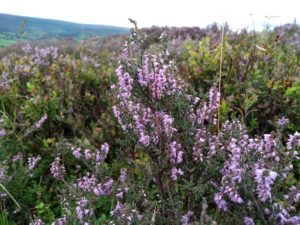

Growth conditions:
It is the only species in the genus Calluna and generally considered one of the toughest plants going, surviving severe exposure, temperatures below -20 °C and burning. However it requires acidic soils (pH 4.5-6.0) to grow and so often doesn’t do well in cultivation. The pH of the soil a plant grows in is important because it affects a wide range of factors, including which bacteria are present and the availability of certain nutrients such as nitrogen. Some soils can also change their structure in different pH’s; a classic example is clay, which is granular and perfectly suited to many crops in the pH range of 5.5-7.0 but at either extreme becomes very sticky and tends to suffocate roots.
The curious properties of heather honey:
As well as being beautiful, heather is a fantastic source of nectar for honey bees. The honey produced by them was once dismissed as unwholesome by the Greek physician, Dioscurides but today it is very popular. It shares an interesting characteristic with tomato ketchup- both are thixotropic fluids. This means that they decrease in viscosity with time for a constant applied shear stress and then gradually return to the original state when the stress is removed. The honey is jelly like until it is stirred and will return to a jelly when the stirring stops, as you can imagine, this makes it very difficult to extract from the honeycomb!

The heather has another surprise in its nectar, one that could be vital in helping to save wild bee colonies. It has recently been found that a chemical called callunene (present in the nectar) can help to treat a common gut parasite, Crithidia bombi, and help protect the bees from catching it in the first place, by preventing flagellar anchoring to the ileum epithelium. Boosting heathland conservation would increase bees’ access to heather, hopefully improving the health of wild colonies. It is also possible that this might be the compound which is responsible for heather’s use in herbal medicine to treat urinary tract infections, although this has yet to be investigated.
Can I make alcohol from it? The important questions in life:
Something you may not have associated this plant with immediately is beer. However heather has been used as a bittering herb (alongside myrtle and broom) in Scottish beer since at least 1769 when Thomas Pennet wrote in A tour in Scotland that on the island of Islay “ale is frequently mixed with the young tops of heath…” Brewing history in Scotland dates back 5,000 yrs so it’s safe to assume this tradition is likely a lot older than Pennet’s book. Beer produced with this mix of herbs is called gruit beer and it can still be found today, although hop beers have largely replaced it because hops tend to be cheaper and do a better job of preserving the beer. February 1st is the official International Gruit Day in case you can find some to try!
AMRC Peer Review Audit Intern – Deadline: 18 Sep 2020
Title: Peer review audit intern
Renumeration: Travel costs
Placement: Mid October 2020 – mid Jan 2021 (3 months in total)
Location: remote working / working from home
About AMRC
Over 30 years ago a diverse group of medical research charities formed the Association of Medical Research Charities (AMRC) to unite the sector and provide it with a leading voice. Since then our membership has grown to over 150 charities across the UK and we continue to lead and support charities to deliver high-quality research that saves and improves lives.
We equip our member charities with regular guidance and training, and provide quality standards to help our member charities maximise the impact of their investment. We play a vital role in influencing the research environment from forging partnerships, to voicing our member charities’ concerns and ideas to policy makers, to developing position statements. Find out more about our work at www.amrc.org.uk.
AMRC peer review audit
In order to gain and maintain AMRC membership, and the hallmark of quality that it affords, charities must fund research in an open and transparent way that includes a robust peer review process. Their ability to do this is assessed during the application process as well as during a full peer review audit that takes place every five years. Any organisation which no longer complies is demitted.
By adhering to AMRC’s five principles of peer review – accountability, balance, independence, rotation and impartiality, charities can support the best research and the best researchers. This, in turn, can help charities maximise the impact of their funding to deliver changes that really matter to their supporters and stakeholders, so that patients benefit from the fruits of research.
With this hallmark of quality, AMRC charities that award funding in an open competition are able to utilise the Charity Research Support Fund in funding research in universities and receive funding support with some of the costs associated with clinical research in the NHS.
The AMRC will be conducting the peer review audit in late 2020. In the spirit of our principles, the audit is assessed by the Peer Review Audit Committee, a panel of expert reviewers who provide advice to the AMRC on the quality of peer review processes in all member charities and that is led by an independent and high-profile Chair.
The outcomes of the audit will be communicated to our members and wider stakeholders. AMRC will use the insights gathered from the audit to consider whether our guidance on our five principles of peer review should be amended.
As the current uncertainty in the UK leads to more challenges for research funders, AMRC wants to ensure that the best research is funded in the best way by making our quality standards for funding as up to date and robust for the future as possible.
About the role
This is a fantastic opportunity to gain exposure to the health and medical research charity sector.
Part of a small but passionate, innovative and influential team, you will play an essential role helping the AMRC deliver its 2020 Peer Review audit. You will report to AMRC’s Research Policy Manager but will have to develop strong relationships across the organisation and research leadership within the member charities.
You will be involved in:
- Ensuring AMRC members are supported and able to complete the audit survey.
- Collating the information from our members to enable independent assessment of their peer review process in making research funding decisions by the Peer Review Audit Committee (PRAC).
- Supporting the PRAC members and the Chair in the assessment of our members adherence to the peer review principles in their research funding decisions. The PRAC will recommend whether a charity passes, passes with minor issues or fails the audit. Charities that fail the audit are demitted from the membership of AMRC.
- Giving consideration to the need to revise AMRC guidance on the principles for decision making about research funding. Medical research charities are increasing funding innovative research in new and different ways, particularly in areas of data and digital innovation. Mechanisms such as sandpits are used by charities to encourage collaborative research projects. You will consider what changes to guidance, if any, AMRC could make.
- Designing communications plans to promote and celebrate completion of the audit, recognising the high standards our members meet.
- Other activities you could be involved in including: policy analysis of emerging issues; political and policy stakeholder mapping; attending meetings alongside AMRC staff, on a range of issues; supporting AMRC’s social media through blogs and Twitter, etc.
About you
You have:
- first degree/masters/PhD in a relevant discipline (or equivalent)
- an eye for detail
- good time management skills
- the ability to prioritise competing demands
- MS Office (including Excel) skills
- a positive attitude to work
- excellent interpersonal and communication skills
You are:
- well organised
- open to learning and new ways of working
- not afraid to ask questions
- able to work independently and proactively
- willing to work flexibly when required
- able to thrive in a busy environment with lots of challenges
Why intern with us?
- You will quickly gain a bird’s eye view of the UK medical research landscape
- You will learn and use a variety of different concrete and applicable skills
- You will get valuable insights into research policy, management and communications
- You will be part of a small, friendly team of approximately 14 people
- You will begin to build a network and make connections within the sector
Skills developed
- Organisation, time management and prioritising
- Written and oral communication skills
- Interpersonal skills
- Working across organisational boundaries
- Accuracy and attention to detail
- Learning and new ways of working
- Project management
How to apply
Please send your CV and a one-page covering letter to Dr Mehwaesh Islam at m.islam@amrc.org.uk
Deadline: no later than Friday 18th September 2020.
In your application, be sure to tell us:
- What interests you most about working with AMRC?
- What transferable skills can you offer in relation to the role? Do you have examples of previous administrative and data handling experience?
- What you would like to achieve from this internship?
Promising applicants will be invited to a virtual interview to take place either w/c 21st or 28th September 2020.
Royal Society of Biology – Deadline: 10 Sep20
The RSB has one internship position available for current PhD students who are funded by AHRC, BBSRC, EPSRC, ESRC, MRC, and NERC.
The successful applicant will spend three months working at the RSB in 2021. Start and end dates can be negotiated as appropriate.
What does a policy internship at the RSB involve?
An internship with the Society will involve the combination of a specific project to be substantially delivered within the period of the placement, along with involvement in ongoing projects and activities of the RSB team. This may involve background research and working with our staff team and members to generate a response to a government or Parliamentary consultation, or the development of one of our Policy Lates events, for example.
Find out more here: https://www.rsb.org.uk/policy/policy-resources/policy-internships
How to apply
To apply in 2020 for internships in 2021, go to the UKRI Policy Internships Scheme webpage.
Deadline
Deadline to apply: 10 September 2020
UKRI Policy Internships – Deadline: 10 Sep20
The research councils organise the Policy Internships Scheme for current research council-funded doctoral students to work for three months in a highly influential policy organisation on one or more policy topics relevant to both the student and the host. The student will be expected to produce at least one briefing paper, participate in a policy inquiry and/or organise a policy event, or equivalent piece of work.
We’ve had great feedback from PGRs who have taken advantage of this scheme, and would really encourage eligible students to check it out.
Internships are available with a number of parliamentary departments, government departments and non-governmental bodies, learned societies and other organisations. Click the link below for a full list of host partners for the 2020/21 competition round, as well as information about how to apply:
Deadline for applications: 16:00 on 10 September 2020
3-Minute Thesis – Alex Setchfield and Katie West
Two of our DTP students – Katie West and Alex Setchfield – took part in the University of York 2020 3-Minute Thesis (3MT) competition and presented their work in the final round on Wednesday 10th June 2020. We talked to Katie and Alex about the whole process – from their motivation to take part, through the preparation they did, to their reflections on the process! We would like to say a very big ‘well done’ to Katie and Alex on making it to the final of the competition, especially with the challenges presented by the coronavirus pandemic! Read their full interview to find out more about their experience and the invaluable advice they have for anyone who wants to try taking part in 3MT in the future, as well as a link where you can watch the event in full.
National Allotments Week – PhD wellbeing
It’s National Allotments Week here in the UK, a celebration of all things green (and purple, orange and yellow)! DTP student and instagram blogger Rachel (@rachels.allotment), is here to talk about the range of benefits you can get from growing your own.
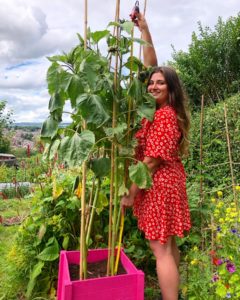
Exploring the science behind everyday plants: Roses
For the first in my blog series: Exploring the science behind everyday plants, it seems appropriate to cover Roses.
The name “Rose” refers to over 300 species of plant in the genus Rosa. They can range from miniature garden roses to climbers that can reach well over 7 M height but one thing they all have in common is the showy flowers they produce.
Rose colours:
The colour of these flowers was used as a sort of language in Victorian England, each symbolising something different. White was for innocence and young love (hence why white roses are common in bridal bouquets), red was for romantic love, yellow was for jealousy and pink was for friendship. Of course, there are thousands of cultivators with mixed colours these days so, in theory, you could send a very nuanced message if you wanted to!

Read moreExploring the science behind everyday plants: Roses
Get to know… your WRDTP Comms Team: Zoe Ingold
Hiya! My name is Zoe and I’m a new member of the comms team from York. I work across YSBL and CNAP studying C-C bond forming enzymes derived from plants. I’m using x-ray crystallography to determine their structures and trying to elucidate their mechanisms in order to modify them to use substrates of industrial importance. Long term this will hopefully lead to greener processes for fine chemicals production.
Why did you join the DTP comms team?
I’ve been doing SciComm since first year of undergrad when I volunteered at the RSC stand for the York Festival of Ideas however, due to corona, all in-person SciComm has been cancelled for the foreseeable future. I saw this time as a good opportunity to develop my writing skills, so I’ve been using twitter to post about the chemistry and cultural importance of a new plant each day (who doesn’t love plants!). Writing for the White Rose blog allows me to explore this in more depth as well as write about other areas of the PhD experience.
Tell us some non-work related things about you!
I love food! York has an amazing food scene and whenever some place new opens up I try to visit. During lockdown I’ve learned how to make pastel de nata from scratch and I’m trying to grow some of my own fruit and veg too. At the start of my PhD some of my friends took my bouldering and I’m really looking forward to the climbing gym re-opening. I also train horses and go out to explore the Yorkshire area whenever I can.
Get to know… your WRDTP Comms Team: Maria Nikolova
My name’s Maria Nikolova and I’m a second year PhD student at the University of Leeds. I am the Comms Team group lead and most of the Tweets you see will be from me. Who knew a lifetime of endless scrolling through social media and subsconsciously absorbing what content gets the most attention will be useful!
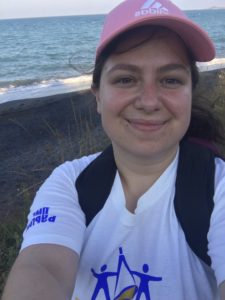
My research focuses on the structural and functional investigation of PACE transporters. They are a family of multidrug efflux pumps that can transport a number of biocides out of bacteria and facilitate resistance. I chose this project because protein biochemistry was my favourite part of the integrated masters I did at the University of York (I just need a post-doc in Sheffield to complete my White Rose collection) and I think antimicrobial resistance is the most urgent global health threat we are facing. I also wanted a challenging project and membrane proteins fit neatly into that category so I can’t complain when it’s hard now (although I still do). It has been a steep learning curve but a rewarding experience and I feel like I have already learned a lot. Now I just need my structure!
I have recently got into cycling as it’s such a great way to get active and explore the green spaces around my plain old terraced house (I have not enjoyed spending a lot of time indoors…) and I get some satisfaction out of getting there all on my own. I may have got a little too into tracking my rides on Strava… Just another social media obsession to add to my list. I also love meeting up with friends in my spare time and getting involved in science communication projects. It’s no surprise then that I’m involved in organising Pint of Science for the second year running as it combines two of my favourite activities! I joined the DTP Comms Team because I see great potential in using our social media and website to showcase and amplify all the great achievements of our students and also provide a platform for students to share what they’re passionate about. I’m also quite excited about connecting with and sharing ideas with our cohort so it’s been great fun for me really. I hope everyone enjoys our posts and our DMs and emails are always open for new suggestions!
Tips on giving a conference talk from Oli Herd
Oli Herd is a final year PhD student at the University of York characterising haematopoietic and immunological changes using a mouse model of chronic immune thrombocytopenia (ITP) under the supervision of Ian Hitchcock and Paul Genever. In December 2019 he presented a talk at the American Society of Hematology Annual Meeting in Orlando, Florida (USA) on his research in defining changes in haematopoietic stem cell populations and the bone marrow microenvironment during ITP progression. We asked Oli for his top tips for preparing to give a talk at a conference, read below for a first-hand account of his experience!
Sense about Science communications intern-Deadline: 6 Aug20
This internship is offered on a remote-working basis initially.
Background
Useful links
2 Stephen St, Fitzrovia, London W1T 1AN | +44 (0)20 7490 9590
When
The internship dates would be Monday 7 September to Friday 4 December 2020, but with remote working there’s of course some flexibility in this if required.
Where
Initially remote-working.
Office-based if and when feasible: 2 Stephen St, Fitzrovia, London W1T 1AN | +44 (0)20 7490 9590
The opportunity
Essential skills
- Ability to identify and use initiative to solve problems
- Ability to organise and prioritise work
- A flair for clear, engaging writing
- Friendly manner
- Candidates should be familiar with and share the Sense about Science ethos regarding the public interest in sound science and evidence
How to apply
Candidates can apply by submitting their CV and cover letter to Dr Hamid Khan
by Wednesday 6 August 2020.
Contact
Dr Hamid Khan
Email: hamid@senseaboutscience.org
Tel: +44 (0)20 7490 9590
Senior partnerships coordinator
Sense about Science
Because evidence matters
Marcus Holt – FindAUniversity
Marcus Holt is a final year PhD student at the University of Leeds, who did his PIPS with the internet-based company FindAUniversity. The company is geared towards students looking for a postgraduate course. He told us what was involved in his role within the Content team (part of which was carried out remotely due to COVID-19) and gave us some great insight into what he took away from his PIPS experience!
Get to know… your WRDTP student reps: Evie Farnham
It’s time to introduce our first student rep from the University of York! Evie is currently in the second year of her PhD. She also did her undergraduate at York, with a year working in the agriculture industry in Gloucestershire. Her PhD allows her to combine her interests in crop protection, microbial evolution and genetics into one project. Evie thinks time has really flown by and she can’t believe she’s already halfway through her PhD!
Read on to find out how Evie’s interest in crop protection has evolved to bring her to her current project and what it entails, what she loves doing in her spare time and one of the misfortunes she’s had during a late night in the lab (don’t worry, it has a happy ending)!
Get to know… your WRDTP Comms Team: Ioannis Tsagakis
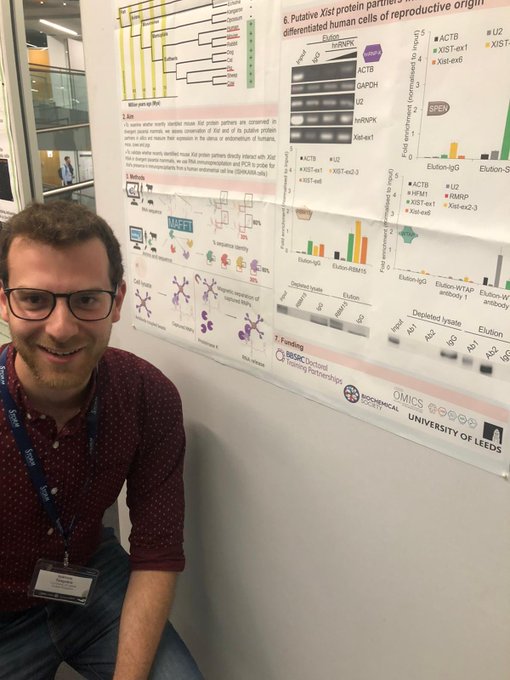
Hi there, my name is Ioannis and I am a 3rd year PhD student working across FBS and FMH on RNA Biology. More specifically, my project aims to understand how long non-protein coding RNAs can co-evolve with their protein binding partners across placental mammals with divergent early pregnancy events. To this end, I use biochemical pull-down methods and primary cell culture to identify the protein interactome of the XIST RNA in humans, cows and pigs.
Why did you join the DTP Communications team?
Joining the DTP Communications team made sense because I am interested in scientific communication and have realised social media provides a new platform to interact with wider networks of scientists. Being an active Twitter user, I frequently post cutting-edge scientific research, conference meeting opportunities as well as my thoughts about all things science. I am also keen to learn about all the latest research which makes me the person having a lot of questions in seminars (not always asking them though).
Enough about work, tell us something about you!
In my spare time, I like to play basketball, cook or explore new places in Leeds for food and/or music. It was clear from the beginning of my PhD, I was pro-pun and would get every chance to come up with science-themed jokes (even if they weren’t that good – groan!). Being native Greek but having spent 10 years in the UK, I now more than ever prefer my holidays by a sandy beach over a mountain hike. A saying that has stuck with me is that…
“There is no such thing as I can’t do, there is only I don’t want to”.
Luke Fountain – Growing skills during lockdown
This week’s blog post comes from Luke Fountain, a second year WRDTP PhD student (and a UK student space ambassador!) at the University of Sheffield.
Over the past few months of lockdown, like many of us, Luke has been trying to find new ways to stay productive while access to university sites has been restricted. Here Luke shares with you what he has been up to, from building hydroponics set ups from home to attending live Q&As with Astronauts!
Hopefully Luke’s experiences will inspire you to get creative as we slowly find our way back into a new normality.
Dani Pierce – MRC Research Unit The Gambia
Dani Pierce is a third year PhD student at the University of Leeds who undertook her PIPS placement at the MRC Research Unit The Gambia. Read her full PIPS case study to find out what scientific work was involved in the two clinical trials she was part of and what it was like spending 3 months in The Gambia (complete with more pictures that capture her experience)! Dani also shared her tips and advice on looking for a PIPS placement.
Get to know.. your WRDTP student reps – Sarah Gratton
Our next WRDTP student rep profile is here.. This week we are introducing you to Sarah Gratton, a long-standing DTP rep with a passion for wildlife conservation!
Sarah joined the DTP in 2017 coming from Durham University. Based at the University of Sheffield, she continues to pursue challenging work within the field of microscopy with a couple of papers already under her belt. Sarah wants to tell the wider world that PhD students matter and wants to chat to YOU if you’re interested in becoming a rep too!
Check out our question and answer session in full!
Read moreGet to know.. your WRDTP student reps – Sarah Gratton
Get to know… your WRDTP student reps: Roz Latham
First in our new blog series ‘Get to know… your WRDTP student reps’ is Rosalind Latham! Roz did her BSc in Biology at the University of York, with a year in Industry in Pharmaceutical research. Highlights of her degree were learning about biotechnology and how to genetically engineer plants/microbes for human benefit.
After gaining industrial experience in a Fast-Moving-Consumer-Goods Graduate Scheme, Roz decided to go back to science and plant biotechnology, which she specialised in as an undergraduate. She’s now 8 months into her PhD and loving it!
We asked Roz a few more questions about her life in and outside of the lab – keep reading to find out how DNA origami can help us get better crops, Roz’s favourite Yorkshire spots and what you should (not) do when growing archaea!
How will protein structures help us in the fight against COVID-19?
Alex Holmes is a second-year White Rose DTP student at the University of Leeds and volunteers as a Pint of Science team leader for the ‘Our Body’ strand. She works at the interface of structural, computational and chemical biology, using these techniques to study a family of membrane proteins and their potential druggability.
Read moreHow will protein structures help us in the fight against COVID-19?
Dorothy Hawkins – COVID-19 – Look North
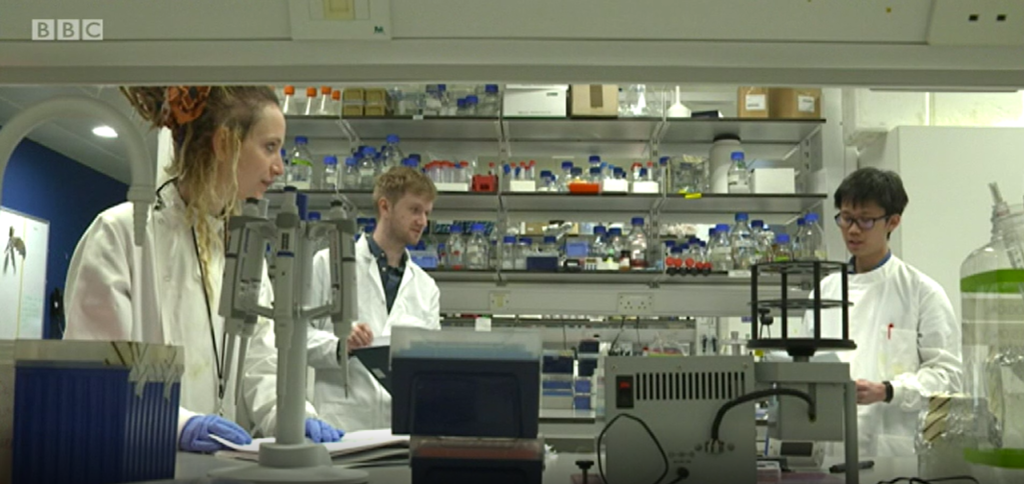
Dorothy Hawkins is a third year DTP student. She featured on the BBC Look North (Yorkshire) news on 20th April 2020. In the midst of the COVID-19 pandemic, Dorothy and her colleagues at The University of York have stepped up to the challenge. They are working at top speed to try and better understand the new coronavirus.
Royal Institution – Christmas Lectures Assistant – Deadline: 21 April 2020
The Royal Institution (RI) is world-renowned as the home of science and is now looking for a PhD student to take on an internship with us as Christmas Lectures Assistant to join the Schools Programme for a 3-month placement to gain experience of education outreach and science communication.
Christmas Lectures Assistant: A unique opportunity to join us for 3 months at the Ri’s busiest and most exciting time of year: the planning, filming and broadcast of the Christmas Lectures.
The intern will be a key part of the delivery team for the lectures, working alongside the Ri Team. They will assist with preparations for the creation, development and implementation of the CHRISTMAS LECTURES and associated activities.
Download Christmas Lectures Assistant Job Description here
For more information about the RI internship programme and details on individual placements, timeframes and how to apply:
https://www.rigb.org/about/work-with-us/programme-placements/phd-internships
Where
The role is based in Central London so students will be expected to base themselves within or near to London for the period of the placement.
When
We are looking for someone from end of September to end of December 2020.
How to apply
To apply please send your CV to recruitment@ri.ac.uk, along with a short supporting statement, no longer than 500 words, to explain why you are interested in the internship and how you meet the experience set out above.
Please also complete the Recruitment Monitoring Form and return this along with your application.
Closing date for receipt of applications is: 9.00am on Tuesday 21 April 2020.
Contact
If you have any queries or need any further information about the Ri or these opportunities before advertising them, please contact Becky Poyntz (noting her part-time working hours).
Becky Poyntz
Human Resources Advisor
Office days- Tuesday to Thursday
Royal Institution – Education Programmes Assistant – Deadline extended to 6 Apr 2020
The Royal Institution (RI) is world-renowned as the home of science and is now looking for a PhD student to take on an internship with us as Education Programmes Assistant to join the Schools Programme for a 3-month placement to gain experience of education outreach and science communication.
The Education Programme Assistant will lead on the evaluation of the Ri’s Science in Schools programme and will be a key member of the outreach team assisting with the development and roll out of the Ri’s new Science in Schools show.
DOWNLOAD DETAILS HERE – 2020 Royal Institution on Education Programmes
For more information about the RI internship programme and details on individual placements, timeframes and how to apply:
https://www.rigb.org/about/work-with-us/programme-placements/phd-internships
Where
The role is based in Central London so students will be expected to base themselves within or near to London for the period of the placement.
When
The dates of the internship were originally planned for May to July 2020 but will be flexible depending on circumstances (possibly September to December).
How to apply
To apply please send your CV to recruitment@ri.ac.uk, along with a short supporting statement, no longer than 500 words, to explain why you are interested in the internship and how you meet the experience set out above.
Please also complete the Recruitment Monitoring Form and return this along with your application.
The closing date for receipt of applications is 9.00am on Monday 6th April 2020.
NB This has been extended from the original deadline of 24th March.
Contact
If you have any queries or need any further information about the Ri or these opportunities before advertising them, please contact Becky Poyntz (noting her part-time working hours).
Becky Poyntz
Human Resources Advisor
Office days- Tuesday to Thursday
Dance Your Ph.D. with Dorothy Hawkins
This is something a bit different! Dorothy Hawkins was short-listed for the 2019 “Dance Your Ph.D.” contest, sponsored by AAAS and Science.
Kew Gardens – State of the World’s Plants & Fungi Symposium – Deadline: 11 Mar 2020
The closing date for applications is 11 March 2020.
The Royal Botanic Gardens at Kew have hosted several DTP students as interns within Kew’s Office of the Science Directorate over the past couple of years and have found that they made a huge contribution to the areas they were working in. This year, Kew have opportunities associated with their State of the World’s Plants and Fungi symposium which takes place in September. This high profile international science and policy symposium is a key event in Kew’s calendar, accompanying the publication of a major scientific report:
www.kew.org/science/state-of-the-worlds-plants-and-fungi.
Internship Role: State of the World’s Plants and Fungi Symposium Intern. Two placements, each lasting three-months, are available – the first running approximately mid-April to mid-July 2020 and the second from early July to end of September 2020.
Location: Kew Gardens (Richmond)
Directorate: Science
Department: Office of the Science Directorate
Supervisors: Mimi Tanimoto and Robyn Price
Kew is a global resource for plant and fungal knowledge. As a volunteer intern, you will join a vibrant team of scientists, support staff and volunteers, contributing to the achievement of one or more of Kew’s three strategic science priorities:
- To document and conduct research into global plant and fungal diversity, and its uses for humanity
- To curate and provide data-rich evidence from Kew’s unrivalled collections as a global asset for scientific research
- To disseminate our scientific knowledge of plants and fungi, maximising its impact in science, education, conservation policy and management
These priorities enable us to curate, enhance, use, explore and share Kew’s global resources – providing robust data and a strong evidence base for our UK and international stakeholders.
Internship overview
Science internships provide valuable training and professional work experience. Interns work alongside Kew’s leading experts and have access to our world-renowned collections of plants and fungi, library and facilities.
You will support the planning and delivery of Kew’s State of the World’s Plants and Fungi Symposium, taking place in September 2020. This high profile international science and policy symposium is a key event in Kew’s annual calendar, accompanying the publication of a major scientific report: www.kew.org/science/state-of-the-worlds-plants-and-fungi
Working with our events, communications, operations and research staff, your responsibilities will include:
- liaising with speakers, chairs, delegates and other project stakeholders
- handling abstract submissions and responses
- marketing and communications
- procurement of symposium materials
- database management
- writing and editing
- project evaluation and reporting
- preparing briefings
- assembling delegate packs
- supporting venue operations
- general administration
- help running the two-day symposium
Training and professional development provided
- Event planning and operations
- Project management
- Administration
- Communication skills including writing, copy editing and brand awareness
About you
You will be:
- Over 18 years old
- A PhD student seeking experience in event management and science engagement
You will have:
- A degree in a biological science-related discipline that includes plant science, mycology or ecology components
- A demonstrated interest in biodiversity, its sustainable use and conservation
- An operating knowledge of Microsoft Office (Word, Excel, Powerpoint and Outlook)
- Excellent attention to detail, performing work to a high standard and using initiative to solve problems and troubleshoot
- Good written and oral communications skills
- Evidence of the ability to work on your own initiative and as part of a team
- A flexible attitude to work as project activities change/evolve
What you can expect from us
- A full induction and appropriate training with ongoing support
- Well-rounded work experience within specific fields to develop knowledge, understanding and skills
- To be allocated clear roles and responsibilities
- To be treated fairly and with respect
- A friendly and dedicated team
- Access to Kew’s collections of living and preserved plants and fungi, as well as its economic botany and Library, Art & Archive collections
- An opportunity to participate in Kew’s internationally renowned science and conservation programmes
How to apply
Please send your CV and a covering letter detailing your reasons for applying for this internship and including details of an academic referee (e.g. your university tutor or supervisor).
Applications should be sent to kewscience@kew.org
Shortlisted applicants will have an opportunity for a Skype discussion of the project with the project manager.
The closing date for applications is 11 March 2020.
Contact
Any questions should be directed to Dr Patricia Giggs at science@kew.org.
Science Administrator (Education)
Phone: 020 8332 5625
Email: kewscience@kew.org
Sense about Science – campaigning charity – Deadline: 1st Mar or 29 Mar 2020
Who we are
Sense about Science is an independent campaigning charity that challenges the misrepresentation of science and evidence in public life. We advocate openness and honesty about research findings, and work to ensure the public interest in sound science and evidence is recognised in public discussion and policymaking.
Where
Sense about Science, 2 Stephen Street, LONDON W1T 1AN
(or ask if you are interested in opportunities in our Dublin office).
Project outline
1/ Voice of Young Science (VoYS)
Background
VoYS is our unique network of early career researchers across Europe committed to playing an active role in public discussions about science. As part of VoYS we hold workshops to encourage early career researchers to make their voices heard in public debates about science. During these full-day events, participants meet scientists who have engaged with the media and learn from respected science journalists about how the media works, how to respond and comment, and what journalists want and expect from scientists. We recently updated our workshops to adapt to the changing landscape of public and policy engagement in science as well as the increased appetite we’ve seen from past attendees for information on how to involve research in policymaking and the necessary steps to take when engaging with different audiences. To effect, we have added a policymaker panel which sees a range of speakers from MPs to researchers at the forefront of the policy-science interface talk about how evidence influences policy, what policymakers are looking for and how early career researchers can get involved. We have also added an interactive public engagement session based on our popular public engagement guide, which we produced with the National Institute of Health Research.
Expectations
Organising a training workshop (including booking and briefing panel speakers who will be journalists, researchers, and policymakers), arranging logistics and liaising with hosts, content management of the website, support of social media engagement before and during with external stakeholders, facilitating sessions on the day including group discussions. Depending on placement timing there is an opportunity to be involved in the development of the programme with external partners, follow up work including collating and analysing evaluation data and reporting to internal stakeholders on successes and challenges – this is especially crucial to monitor and analyse our new panels.
2/ Evidence Week
Background
For one week in the summer, we hold Evidence Week in Parliament, our flagship policy event where we bring together MPs, policy advisers and community speakers discuss the case that evidence matters to people. The week involves events and briefings, as well as evidence stands that parliamentarians can come and visit. This is an amazing opportunity for anyone interested in evidence-based policymaking as you will have the inside track into the organisation of Evidence Week and be at the heart of Parliament. You will have opportunities to engage directly with MPs and policy advisers. In 2020, we are looking to develop the Evidence Week programme with a series of special events in the Scottish Parliament.
Expectations
Working with the project manager to secure funding for the event, liaising with potential partners and coordinating discussions with partners about themes and content. Working with the senior comms officer to plan a social media calendar for the event and to reach key contacts to inform them about plans for the event and how they can get involved. Working with the research manager to develop content for our own stand, and working with the senior partnerships coordinator to mobilise our networks to participate in the event. Working with the team during the event to speak to MPs and reporting on MP engagement afterwards.
3/ John Maddox Prize
Background
The John Maddox Prize is our internationally-recognised award that celebrates the work of individuals who promote sound science and evidence in a matter of public interest, facing difficulty or hostility in doing so. The prize is a joint initiative of Nature and Sense about Science. Read the profiles of previous winners: 2016 winner Elizabeth Loftus, 2017 winner Dr Riko Muranaka and the issues for which she was awarded the prize, 2018 winners Professor Terry Hughes and Britt Hermes and 2019 winners Professor Bambang Hero Saharjo and Olivier Bernard. The 2020 prize will be launched in March. Judging for the 2020 award will involve our panel of high-profile and respected academics, journalists and science communicators including Lord Martin Rees, Sir Colin Blakemore and Natasha Loder.
Expectations
Working with our communications manager to create and shape the communications and press launch strategy, implementing the strategy including liaising heavily with journalists from major and minor press, opportunity to attend the high profile event allowing opportunities for networking.
4/ General office
It’s a busy, lively office where we all muck in and no two days are the same. You will be working with the senior partnerships coordinator, the policy manager and the senior communications officer, but there are many opportunities to support other areas of the team’s work. You will also have scope to lead areas of work. Crucially, our interns and what they want to get out of an internship are important to us so we will tailor their time here to meet their interests.
Essential skills required
- Ability to identify and use initiative to solve problems
- Ability to organise and prioritise your work
- A flair for clear, engaging writing
- Friendly manner
- Candidates should be familiar with and share the Sense about Science ethos regarding the public interest in sound science and evidence
Skills developed
The internship will provide skills and experience in:
- Project management
- Event management and delivery
- Stakeholder management across different funding sectors
- Website development and the production of promotional materials
- Communicating complex information to a lay audience via verbal and written approaches
- Develop a greater understanding of debates about evidence and areas that are difficult for scientists and for society
- Opportunity to significantly grow your network
Number of placements offered
We have the capacity to have 1-2 interns in the London office at any given time throughout the year, i.e. a maximum of 8 in a year. For exceptional candidates we may be able to run internships concurrently especially if there is a significant project at time of application. There may also be opportunities to work at our Dublin office.
Possible timeframe
April 2020 onwards on a rolling 3-month basis i.e. you also can start in May, June, July etc.
How to apply
To apply, send your CV and a cover letter to Dr Hamid Khan (details below).
Deadline for applications
If you wish to start in April 2020, the deadline for applications is Sunday 1st March 2020 (23:59 hrs).
If you wish to start at any time from May onwards during 2020, the deadline for applications is Sunday 29th March 2020 (23:59 hrs).
Contact
Dr Hamid Khan, Senior Partnerships Co-ordinator
Email: hamid@senseaboutscience.org
Tel: 020 7490 9590
Website: https://senseaboutscience.org/
Royal Institution Digital Media Intern – Deadline: Mon 16 Mar 2020 (midnight)
The Royal Institution is world-renowned as the home of science and we are now looking for 3 PhD students to take on an internship with us as Digital Media interns. They would come and join our creative team of media producers and digital communication professionals for a 3-month placement to gain experience of digital media and science communication. There will be 3 different start dates to cover the period from April 2020 to December/January and there may be flexibility for the right candidate.
The interns will focus on creating, shaping and developing our science engagement and heritage content, helping to manage our digital channels and working as part of the Ri’s new website project team. Download the flyer for more information:
2020 Royal Instituion – Digital Media flyer
Please note, the Ri offers placements for students who are enrolled on a research degree under the Doctoral Training Partnership programme funded by Research Councils including the BBSRC, EPSRC, ESRC, AHRC and NERC. These opportunities are only open to PhD students who are eligible for a stipend via their DTP/University/research council in order to undertake a 12 week professional internship. Students should check with their university that they are able to secure funding before applying. They will need to obtain the grant holder’s written permission to undertake the placement, outlining any funding arrangements, before a position can be offered.
NOTE FROM THE WHITE ROSE BBSRC DTP CO-ORDINATOR – Contact me for the relevant permission and funding authorisation. Catherine Liddle (c.m.liddle@leeds.ac.uk).
The role is based in Central London so students will be expected to base themselves within or near to London for the period of the placement.
How to apply
For more information about our internship programme and details on individual placements, timeframes and how to apply, please direct students to our website via this link: https://www.rigb.org/about/work-with-us/programme-placements/phd-internships
The closing date for receipt of applications is Monday 16 March 2020 (midnight).
Contact
If you have any queries or need any further information about the Ri or these opportunities before advertising them, please contact me (noting my part-time working hours).
Becky Poyntz
Human Resources Advisor
Office days – Tuesday to Thursday
Royal Institution, 21 Albemarle Street, London W1S 4BS
t: 020 7670 2959
BBSRC Evidence and Evaluation – Deadline: 2 Mar 2020
Professional Internship within the Evidence and Evaluation Function
Within the Evidence and Evaluation Function at UKRI-BBSRC, there is an exciting opportunity for a Professional Internship for PhD Students (PIPS) placement to work on exploring new ways of portfolio analysis using a range of novel analytics tools. This interesting and challenging internship will provide insights into BBSRC’s portfolio and innovative ways of analysing and visualising data, which enrich the evidence base for decision making and strategic planning. As a PIPS intern, you will be closely involved in work that interfaces with many areas of the office, spanning the remit of BBSRC science.
Background
UKRI-BBSRC provides a strategic capability aimed at ensuring that the UK retains its world leading position in many areas of the biological sciences, and that the UK has the knowledge and skills base to remain internationally competitive in biology-based industries.
Within the Evidence and Evaluation Function, we seek to further develop our analytical capabilities, exploiting advances in text analytics, data visualisation and auto-classification in order to enrich the evidence base to inform UKRI-BBSRC strategic planning. With data at the centre of our work, we are enabling rapid, data-driven insights into our portfolio of research investments, outputs and outcomes. Within the team, we use a range of analytics tools, including Power BI, Tableau, Sci2, Gephi and Alteryx. We are currently in the process of exploring new data visualisation workflows, taking advantage of more advanced features of Sci2 and Gephi for network analysis. Moreover, we use text mining and clustering capabilities of the next generation clustering engine Lingo4G, which groups documents into related topics and provides simple and intuitive visualisations. This is particularly helpful in analysing multi-disciplinary areas of our portfolio, classifying those areas of research that span across remits of other research councils and funders, e.g. within multi-funder partnerships, and defining emerging fields of research. This innovative approach will enable new, meaningful and rapid insights into our portfolio and provide an opportunity for further collaborative work across UK Research and Innovation on mutual areas of interest.
Role of the PIPS intern
There is an opportunity for a PIPS intern to assist in portfolio analyses spanning the entire breath of BBSRC research, looking at emerging areas of science using topic burst analysis. Some of the analyses might focus specifically on defined areas of the portfolio, such as particular research areas, international collaboration and interactions with key stakeholders. The project will allow the PIPS intern to develop skills in text mining and clustering approaches, as well as data analysis and presentation. The PIPS intern will support UKRI-BBSRC staff in the above analyses and will have a chance to get involved in developing new data visualisations. At the end of the project, the PIPS intern will be expected to produce a report summarising findings of the analyses performed and visualisations developed, details of which will be presented to the team. The role will be located within the Policy, Strategy and Evidence Domain and provide a unique opportunity to learn about how our analyses inform the strategic planning and decision making. The PIPS intern should have enthusiasm for science and data analysis, as well as good organisational, communication and interpersonal skills. This placement will also be an excellent opportunity to learn about other activities within UKRI-BBSRC and UK Research and Innovation as a whole.
When
You should be available to start your placement in May 2020, however the start date is negotiable.
How to apply
If you would like to apply for this PIPS placement, please complete the attached application form and return it to pips@bbsrc.ukri.org and Joanna.Jacklin@BBSRC.ukri.org
Download the application form here:
2020 BBSRC Evidence and Evaluation applic form
Deadline for applications: Monday 2nd March 2020
Contact
Questions on this placement can be directed to Dr Joanna Jacklin (Joanna.Jacklin@BBSRC.ukri.org).
Lukas Jasaitis – Singer Instruments
Best PIPS Talk
Lukas Jasaitis won the prize for Best PIPS Talk – “Algae, Robots, The Great Unkown” – at the DTP Student Symposium held on 13th December 2019. He undertook his PIPS in the field of Laboratory Robotics manufacturing at Singer Instruments in Somerset… which was a very long way to go! But totally worth it!
Whilst at Singer, Lukas’ main duties were:
- Quality assurance on a number of high value products within demanding time frames
- Work on designing methods to assess and track reliability
- Pioneering the Chlamydomonas reinhardtii research project within the Singer lab
Lukas particularly enjoyed these aspects of his PIPS:
“I really enjoyed defined working hours, that demanded that I learn to structure my work so that I accomplish all of the tasks that were assigned to me (or that I have planned for myself), or if I realized that I was at maximum capacity to communicate this to my co-workers. During my first weeks, I found the fact that I am now indeed working as a part of a small focused team surprising and very rewarding. The pay-off for doing good quality, well-documented work was immediately accessible.”
There was a commercial outcome to the role:
“Validating the robot’s capability of manipulating this organism (Chlamydomonas reinhardtii) opens up a large new sector that this robot can be marketed and sold to.”
A key benefit of the placement for Lukas was:
“I have learned better ways to organise and communicate vital information, I now use these skills in my day to day work and I am passing them on to the people I work with.”
Talk slides
Luke has kindly agreed to share his talk slides – They provide lots of useful information about making the most of your PIPS e.g. a Timeline to Start, as well as some beautiful photographs of the Somerset landscape!
Lukas Jasaitis PIP slides – Click here to download
Biochemical Society Careers Intern – Deadline: 2 Mar 2020

Careers intern
Internship: 35hrs/week (full time), in central London.
This three-month placement is intended to be taken as part of a funded studentship and students should continue to receive a stipend from their funder during the placement. The Biochemical Society is unable to accept interns without funding for this role. (Note: White Rose BBSRC DTP students will continue to receive their stipend during their Professional Internship for PhD Students (PIPS) placement).
The Biochemical Society offers support towards travel and accommodation costs for internships, up to a total cost of £2,400 for a three-month placement, payable through expenses.
Start date: April/May (flexible start) (Note: White Rose BBSRC DTP students will need to access this funding, in addition to the PIPS standard allowance provided by the DTP, as living costs in London are usually expensive).
The Biochemical Society runs a broad education, training and public engagement programme, as part of which we develop careers materials and activities for a wide range of audiences across the molecular bioscience community. We are looking for a careers intern to assist with the team’s work and develop a new activity targeted at Key Stage 3 audiences.
Responsibilities will include:
- Developing a new careers project targeted at teachers of key stage 3 students (age 10-14). This project will aim to embed careers materials into school curricula and highlight the breadth of career paths in the molecular biosciences
- Reviewing existing careers material to ensure they are still relevant and up-to-date
- Supporting the development of new careers articles, case studies and resources.
- Monitoring the discussion forums of the Society’s ‘Biochemistry: the molecules of life’ Massive Open Online Course (MOOC)
Skills required
- Interest in education and careers
- Excellent attention to detail
- Good communication skills
- Good time management skills
- Computer literate
How to apply
Please send a CV and covering letter to Lorenza Giannella, Training Manager: lorenza.giannella@biochemistry.org
Deadline for applications: Monday 2nd March 2020.
Contact
Lorenza Giannella, Training Manager
Andy Stone – The Academy of Medical Sciences
Andy Stone wrote a case study for his host organisation at the Academy of Medical Sciences. Click the link below to find out Andy’s answers to questions such as,
Tell us about your PhD and what stage you were in when you did your internship
What did you work on during your internship?
Do you have any advice for someone who’s thinking of applying for the internship?
… and many more
https://acmedsci.ac.uk/more/case-studies/internship-programme/andy-stone

